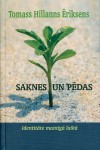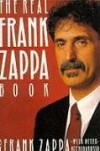Currently reading
Scholar Warrior: An Introduction to the Tao in Everyday Life
Great Expectations
Saknes un pēdas.
Neuromancer
The Pity of War: Explaining World War I
Creativity: Flow and the Psychology of Discovery and Invention
The Real Frank Zappa Book
The New Drawing on the Right Side of the Brain
Fun with Chinese Characters
Baltijas Valstu vēsture
Why Gender Matters: What Parents and Teachers Need to Know about the Emerging Science of Sex Differences
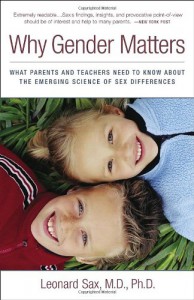 Leonard Sax's Why Gender Matters sets out to persuade that biology plays a significant role in how gender works, that we are not born androgynous blank slates that are molded by societal expectations and enculturation alone, and purports to back up his claims with data from scientific studies.
Leonard Sax's Why Gender Matters sets out to persuade that biology plays a significant role in how gender works, that we are not born androgynous blank slates that are molded by societal expectations and enculturation alone, and purports to back up his claims with data from scientific studies.Now, going wherever the evidence leads you to, particularly if it works against your interest is one of the most admirable intellectual endeavors one can embark on - so my intuition was that if it would turn out that the evidence uncomfortably pokes at our modern, ultimately noble, but potentially misguided egalitarianism (gender-blind being the term that crops up in the book), then so be it - and hope we end up all the better for knowing the truth. The author even voices his frustration with there seemingly being only two positions to be had - either the PC flavoured gender-equality-or-else stance and appealing to traditional roles for the sake of appealing to traditional roles. So far, so good.
The first few chapters of the book start with stories that have the air of verisimilitude, if not actual veracity on their side (I'll get to that soon enough).
1) One story is about how a lack of either awareness of mindfulness of the differences in hearing ability between boys and girls at young ages could also result in a difference in how the (mostly female, the author stresses to point out) teachers treat them - i.e. mistaking a boy simply not hearing the teacher's commands for being disobedient.
For me, these comprise the book's strongest cases for its thesis in that at least the first one seems to rely on actual studies, and they both seem to be neutral enough at first glance to not have an agenda behind them. The devastating fact is that the second story can be detected to be a gross oversimplification even without all that much mental gymnastics (you don't need to fall back on biology to justify the author's chosen anecdotes even if you could go about it that way), and the first story is just plain wrong, if not even deliberately misleading.2) Another, more flimsy, but still I-could-see-how-this-works story covers how boys think in verbs and girls - in nouns purporting to explain why children pick the toys they do and draw the things they draw in arts classes.
The shortcomings of these chapters are significant, because they are the closest the author ever comes to the title's espoused rigorous scientific approach. As you read on, the tone uncomfortably shifts towards pandering the author's own various opinions and agendas (i.e. single-sex schooling) that all amounts to the all too tedious "I have many opinions, all of them correct, and here is how curious anecdotes and selectively chosen studies support them" that even the best among us invariably fall for time to time, but should be below par to anyone claiming to have thought deeply about the topic, and thus daring to go all prescriptive on his readership.
While I have my own issues with the book so far as I've read it (that I'll hopefully be able to address in a separate review in the best of all worlds) - Cordelia Fine's [b:Delusions of Gender|8031168|Delusions of Gender How Our Minds, Society, and Neurosexism Create Difference|Cordelia Fine|https://d202m5krfqbpi5.cloudfront.net/books/1348833681s/8031168.jpg|12635310] debunks the validity of most such research as is used here (even so far as specifically mentioning the fallacies of Sax's reasoning), in exposing how flawed most of the studies surrounding sex and gender differences are - from methodology, study sample sizes, and all the way up to interpretation of data and rather illogical jumps to conclusions about test results for rats somehow being significant to the inner workings of their human cousins.
As far as the anecdotes go - one of their purposes in popular science books is to breathe life into data and make it less of an abstraction to the reader. Sax uses the anecdotes presented here not to elucidate wildly esoteric data, but rather convince himself and the readers that his opinions represent an immutable reality.
The author's stories somehow manage to simultaneously support all the traditionally accepted notions, like the system-thinking vs. empathy aptitude discrepancies among the sexes, to some rather modern ones - i.e. that homosexual men are actually hyper-masculine and so on. I guess one has to be grateful the gay section of the book wasn't as overtly homophobic as it could've been - but, while admitting that the more effeminate men are in all likelihood not quite as representative of the gay community as most non-queer people might think, Sax still can't explain them away and have his opinions hold. Sure, he addresses the existence of what he calls anomalous males and females - but all his reassurances are invalidated by a whole rant on how parents should deal with these gender-atypical children (spoiler alert: Sax's method of choice - forcing them into conformity, usually via team sports).
For all his purported facade of even-handedness, his actual beliefs about masculinity and femininity plummet fast to the traditional end of the spectrum as you go deeper into the heart of darkness that are the later chapters of the book. You have to look no further than the rather ridiculous masculinity and femininity tests he provides, and it should be abundantly clear how context-specific and subjectively flavoured his ideas of those concepts are. Worse still than being merely traditional is how terribly confused they are - as he insists upon projecting the masculine-feminine dichotomy to domains which have nothing to do with gender in particular so far as I can muster.
As mentioned, he continuously prescribes team sports as a solution to a number of gender-atypical cases in the book - but to me, all of these came across as blatant attacks on introvert kids (they were described as bookish and shy to engage in social situations) under the excuse to cure them of their gender-nonconformity. When reading these sections, you'd think he was completely ignorant of the entire existence of an introversion vs. extroversion dimension of personalities, which is kind of perplexing for a psychologist, but I suppose illustrates how blind-sighted he is with seeing gender and sex everywhere he looks.
The author holds unfavourable opinions towards video games and other (in his mind) male-typical hobbies, but - again - this more than anything illustrates a profound ignorance on his part about the fiction (fantasy) vs. reality issue and (at this point) unsurprisingly has him equate it with gender issues. To use one of his own more disturbing examples to this effect - he mentions the following about men and rape fantasies:
Aside the fact of how reliable a source a sex magazine is, it is astounding that Sax can bulldozer over the whole issue and fail to see the difference between someone having a kinky fantasy and a desire to deliberately inflict harm to another human being. Given this, it may not be that surprising that he also fallaciously draws the conclusion that playing violent video-games results in violent players, watching films and TV shows about serial killers somehow unleashes your inner Hannibal Lecter, and indulging in sexual fantasies somehow makes you a pervert and a rapist (or worse still - maybe he was implying that the desire to rape is somehow natural to men?).“Highly intelligent men are no less likely to fantasize about raping a woman than are men of below-average intelligence. The most common sexual fantasy in sex magazines is rape and/or bondage of a young woman.”
One could go on about the myriad of ways this book fails to deliver on the promise of a scientific backing for significant biological differences in the sexes, but whatever science is there is faulty at worst, skewed to the author's fancy at best - and the rest of the book is a parade of the author's pet biases packaged to mislead you in believing it actually is part of some larger corpus of research the author has spared you of reading by distilling it into his advice.
To paraphrase Hanlon's razor - I won't assume malice and insincerity where ignorance would suffice in regards to the author's opinions, but the way he presents the data, and some of the perplexing misunderstandings of human nature on his part do cast shadows on considering him a worthwhile expert in the field. His intentions may have been good, but we all ought to know, that without the rigour to test one's beliefs on the strength of their own merits rather than on its holder's desire for them to be true, they are but only passable pavement material.
The Seal of the Unity of the Three: A Study and Translation of the Cantong qi, the Source of the Taoist Way of the Golden Elixir
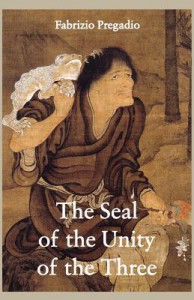 [Note: Spoilers are used as footnote substitutes]
[Note: Spoilers are used as footnote substitutes]Having written an undergraduate thesis on the "The Seal of the Unity of the Three's" chapter on Fire Phases (huohou 火候) in 2011, I was instantly intrigued at the prospect of an exhaustive study of the said treatise. Would've been potentially more so if the book's publication date wouldn't have so narrowly (well, a few months after graduation anyway) disabled me to peruse it for my own purposes, but, frivolous excursions in solipsism aside, there is much to commend in the academic detective work done here to make the alleged first text of alchemy more approachable, or - at the very least - less obscure.
About the Book
"The Seal of the Unity of the Three" could be summed up as a treatise on the philosophy of alchemy, how it relates to its contemporaneous Daoist traditions, and Chinese cosmology at large (with alchemy, Daoism and cosmology being the titular 'three' [*] Heaven, Earth and Man being another option mentioned in the book and other scholarly work on the text, but I digress...). Its significance lies in the attempted synthesis of the three, being influential in both - the actual alchemical traditions of Outer Alchemy (Waidan 外丹) and the meditative practices of Inner Alchemy (Neidan 內丹) - and, maybe less remarkably, for coining the four-character Chinese expression yü mu hun zhu 魚目混珠 - pass off fish eyes for pearls as from the below quote from Chapter 35:7 (p. 85) [*] The transition from a line in the text to a cheng-yü 成語 might not be as straightforward as I make it here; but it might be worth to make a more in-depth inquiry at a more leisurely time.
The sixty page introduction covers the issues of dating of the text, historicity of the traditionally attributed author Wei Boyang 魏伯陽, the text's origins, frequently used symbols and terminology, and other issues - often contrasting ongoing scholarly research with the traditional assumptions.魚目豈為珠 __ Could a fish eye ever turn into a pearl?
I wouldn't spoil anything by revealing as much that the traditional view doesn't quite offer a full picture; so it's interesting to learn that the text might originally have not been on alchemy at all, that Wei Boyang (who's not even attributed as the author in some cases!) is more of a stand-in for an anonymous group of authors, rather than an actual historical figure, and various other relevant information that make the treatise less of an enigma.
The Translation
The translation is lucid in its language and never feels forced. The author's remarks make patterns and parallel themes in the text apparent, and clearly distinguish verses that are citations from other works. The new translation of the title is also less of a mouthful compared to the author's previous way of rendering it ("The Token of the Agreement of the Tree in Accordance with the Book of Changes").
I imagine there is a certain accepted standard on how a multi-layered translation is to be arranged and presented, so me preferring to read all information relevant to the chapters in one place didn't mesh well with the layout offered here - where the Chinese text, its translation, commentaries on the text, and textual notes are separate parts of the book. This is the closest I'd come to actual criticism for the book, but I suppose the layout doesn't make my approach to reading impossible, only somewhat more cumbersome.
Accessibility
Without diminishing the above praise in the least, one has to admit, that what makes it hard to appreciate the extraordinary work done here is the text itself. Conceived to be nigh impenetrable by the uninitiated mind, it still is a bit of a head-scratcher to wrap your mind around, even if you, like me, don't feel entirely green to the subject.
This in no way is a failure of the book itself, as it never purports to be a dummy's guide to the subject matter, but it pays to warn the casual reader that if you are not already familiar with the "Book of Changes" 易經 [Yi Jing], the "Dao De Jing" 道德經 (and maybe some "Zhuangzi" 莊子 and "Scripture of the Yellow Court" 黃庭經 [Huang ting jing] for good measure), the Heavenly Stems and Earthly Branches system 天干地支 [Tian gan Di zhi], and some basic understanding of the principles of Chinese alchemy (i.e. why lead and mercury are significant), to just name some of the basic prerequisites - it might be hard to fully appreciate the book's merits, much less peruse it for any pleasure reading.
The Wei Boyang Code
While pleasure reading might seem counter-intuitive, and require too much effort to find anything pleasurable about the read on account of the whole text essentially being one big insider joke, some passages can be delectable and witty if you happen to be in on the joke. To take a look at some of my favourite passages from the chapter I studied for my thesis - Ch 51:55-58 (p. 99)
The above is one stanza of a series depicting the yearly cycle, this one clearly alluding to the end of the year (when the 'life-giving force' gives out). The suggestive language aside, each stanza also hides in itself an earthly branch and pitch pipe signifier that corresponds to the hexagram in question.剝爛肢體 __ Bo ䷖ (Splitting Apart) tears its limbs and trunk,
消滅其形 __ extinguishing its form.
化氣旣竭 __ The vital Breath is drained,
亡失至神 __ the supreme Spirit is forgotten and is lost.
There is an interesting visual 'pun' where the hexagram Bo itself looks 'torn apart' but also makes you play hide and seek with the corresponding earthly branch xu 戌 - with it eventually being found by 'destroying' the similar looking mie 滅 in your mind.
This code, if you will, is present for the remaining 11 sovereign hexagrams bigua 辟卦, along with allusions to other significant markers - and whilst similar explanations are available in the book - this should be demonstrative how difficult it is to fully comprehend the text, much less find some witty quote for the 'uninitiated.'
In Conclusion
I guess the closest you can come to find something quotable in the text that doesn't require getting an additional degree, would be either a stanza in Ch 67:1-4 (p. 107) that has a nice, poetic quality to it, while still staying true to Daoist imagery of interdependent opposites:
.. or Wei Boyang's retelling of the journey he underwent to become a transcendent being xian 仙 in Ch 88:1-6 (p. 126), which I found inexplicably attractive, and I suppose so did the author by reiterating the quote on the book's back cover:立竿見影 __ Stand a pole upon the earth and a shadow appears;
呼谷傳響 __ shout into a valley and an echo comes forth.
豈不靈哉 __ Is this not numinous?
天地至象 __ This is the perfect image of Heaven and Earth.
While I'm still to get my hands on Vol. 2, this particular volume, while much better appreciated if the reader is already steeped into the subject at least a little bit, does an excellent job of covering all the basic questions about the text and provides a very readable English translation.委時去害 __ Forsaking the times, avoiding harm,
依託丘山 __ I have entrusted myself to mountains and hills.
循遊寥廓 __ I have wandered and roamed through the Unbounded,
與鬼為鄰 __ with demons as my neighbors.
化形而仙 __ Transmuting my form, transcending the world,
淪寂無聲 __ I have entered the depths of the Inaudible.
Me
 However little consolation it may be, one can always take comfort in the thought that even a life that's been ordinary, less than exemplary, and unremarkable (by whatever arbitrary standards of remarkableness one holds it up to) does not have to get in the way of a well-written, emotionally resonant life story. Ricky Martin's memoir proves that the converse holds true as well - detract self-aware introspection, relevant information and writing ability, and you may well have been livin' a vida loca, but will catastrophically fail to communicate what was so compelling about it.
However little consolation it may be, one can always take comfort in the thought that even a life that's been ordinary, less than exemplary, and unremarkable (by whatever arbitrary standards of remarkableness one holds it up to) does not have to get in the way of a well-written, emotionally resonant life story. Ricky Martin's memoir proves that the converse holds true as well - detract self-aware introspection, relevant information and writing ability, and you may well have been livin' a vida loca, but will catastrophically fail to communicate what was so compelling about it. What little I remember of his music career from my adolescent years and his unsurprising (at least to the gayfolk) coming out, incited me to read the book - but I did not feel strongly about him as a person either way prior to reading. The problem is, that after conquering the middle-schooler's "How I spent my summer"-essay quality, the tautological, new-agey prose style that would make the conmen creators of "[b:The Secret|52529|The Secret (The Secret, #1)|Rhonda Byrne|http://d.gr-assets.com/books/1347602964s/52529.jpg|2001660]" proud - I was unsure whether there was any deep insight into his psychology to be had in this read. Sure, he seems to be an overall agreeable chap, and his charity work is laudable, but - as a biography - this gives you a superficial glance of his life at best, omitting just about everything that would've been interesting about a memoir of a pop-star's life and career. Instead of presenting a self-aware, insightful, and inspiring look back at what clearly has been an eventful life, he deals in generalities while attempting to appear deeply spiritual.
Additional Thoughts: Sexuality
Despite the issue of his sexuality and the constant apologetics for why he came out when he did (ranging from a simple and honest fear about what other people will think, to "everything happens for a reason, and at the perfect time" and other assorted woo-woo crap) being the closest thing to a pervasive thread throughout the book - he dances about the issue in a vague manner, and doesn't delve on his same-sex relationships beyond basic pleasantries. Rather curiously, he is more explicit (but only barely more so) about the women he bedded. Martin does reiterate that he wants to keep some details of his life and those in it private, and a good autobiography certainly needn't be an exposé - but if you're deliberately being coy, and do all but flesh out in a paragraph or two some basic facts one could as well have used their google-fu skills to learn, why write at all?
Additional Thoughts: Music
Far more disappointing, however, is the lack of any real insight of what makes Martin tick as a musician. One would think this, being his element, would offer by far the most juicy and sophisticated ideas, but judging by the amount of content, you'd have to assume Martin was writing a self-help book on some vague concepts of a new age spirituality instead.
His time in Menudo?
Ugh. Receiving a Grammy/ Premio El Heraldo de México?"Amazing, and a valuable lesson, that I had no idea of knowing would be so important for my career!!!" (not an actual quote)
And on and on it goes in a tone of saccharine, yet rather implausible humility best reserved for acceptance speeches - so don't expect any exegesis on the creative processes, inspiration, influences, personal meanings of particular songs or lyrics, or anything else of consequence."It was such a great honor for me, I could not believe my luck! But I also worked hard for it, because I firmly believe that if I didn't work hard for it, then *something, something, new age fluff*" (also heavily paraphrased)
To be fair - he does mention something along the lines of:
Having to an extent experienced it on my own skin - I can get where he's coming from, but, even if true, this doesn't make for an exciting account of what his songs mean to him."[..] And that is exactly what happens when you put a song out into the world: It becomes everyone's property and everyone has the right to interpret it and live it as they see fit. [..]"
Others have suggested that anyone thinking of reading Martin's memoirs should basically calibrate one's expectations and give him a break for not being a writer. I'll concede, that, as before - on the rare occasions I think of him - I don't think of him badly, but on what other criteria but the quality of writing and its content should one judge a book? How can the author being of decent character substitute for that?
As it is, the book is superficial, overcautious, anxiously avoiding any chance to offend, written in a simplistic manner - and the focus oddly is the author's suspect philosophy, rather than deep explorations of significant events in his life, or explication of his oeuvre.
Change Your Thoughts - Change Your Life: Living the Wisdom of the Tao
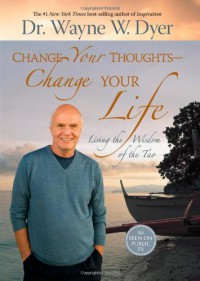 Assuming these new age self-help gurus are guilty of being woo-woo shamans until they prove otherwise has generally spared me a lot of disappointment, though I do try to avoid being cynical if I can help it. My first encounter with Wayne Dyer, however, doesn't break the mold as one could've guessed from my one-star rating.
Assuming these new age self-help gurus are guilty of being woo-woo shamans until they prove otherwise has generally spared me a lot of disappointment, though I do try to avoid being cynical if I can help it. My first encounter with Wayne Dyer, however, doesn't break the mold as one could've guessed from my one-star rating. My low opinion isn't so much about the content of Dyer's ongoing ramblings he's packaged as "advice". "Let's be nice, less controlling of other people, more mindful of our impact on the environment... (among other things)" is by no means a bad set of rules to lead your life by. But are they really a revolution in personal growth and ethics to anyone who's ever read a work of philosophy, psychology or even other new age trite of this sort before? Even conceding that, my main grievance with the work is Dyer's suspect methodology.
The two things that immediately ought to get your spidey senses tingling regarding Dyer's interpretation are:
A) He derived his insights based on a set of English translations of a text originally written in ancient Chinese;
B) He's surgically removed the text from its cultural, historic and religious context and is treating every little ambiguity in it as a "fill in the blank" game;
But let's tackle them one at a time.
A): The Language
Knowing that there are scholars who devote their entire academic careers to the "Dao De Jing" with the knowledge of:
1) The languages (ancient and modern Chinese);
2) The context;
3) The various versions (!) of the actual text;
4) The commentaries;
let's grant that Dyer is still entitled to his interpretation written during the course of a year he, as I assume from the constant references made in the book itself, spent in Maui (must've been nice).
I am not one of the scholars, if you're wondering - but that just emphasizes my point even more - if someone of such limited erudition as yours truly can make the points I'm making, imagine what a more learned person's more meticulous examination could conjure up.
Let's grant him some more ground to stand on. Having suffered through a few semesters of ancient literary Chinese courses (basically - the written language in which all of these classical Chinese texts were written), I have some sympathy for not wanting to undertake a task as daunting as learning a foreign language purely for a, lest I'm unaware of any existing or upcoming continuations, one-time project like this.
But what does it tell of his intellectual integrity, respect for the readers and the source material alike, to not even seriously acknowledge that he never consults the actual text in its original form? If not through deliberate study of the language and Chinese characters, then least of all with the help of scholars and/or people proficient in the language?
Instead - he plays a 2500+ year long, language-crossing game of "broken telephone" in good faith that his most immediate sources will be good enough. Or did he seriously think that the numerous occasions he meditated in front of the image of Laozi (as he keeps reminding us in the book) somehow allowed him to bypass the language and temporal barrier separating them? Add to that Laozi's as a person's historicity is dubious at best, thus making Dyer's spiritualist shenanigans unintentionally funny (even if you're not a materialist, you'd have to admit that contacting a person who may never have existed, this side or beyond the grave, would surely be challenging, to not say impossible).
If you think the language issue is divorced from reality, and Dyer can still successfully derive meaning from good translations (though how would he know the quality of a translation in any meaningful manner without the knowledge of the original text?) - here's an example how Dyer's reliance on an English translation distorted his reasoning about what the 71st chapter of the "Dao De Jing" is actually about (I'm putting it in spoiler tags in case you're not interested in such an in-depth analysis):
DDJ #71: 知不知上;不知知病。
Me: To know (知) that you don't know (不知) is superior (上); to not know (不知), and to think you DO know (知) is a disease (病).
Dyer: Knowing ignorance is strenght; ignoring knowledge is sickness.
[..]DDJ: 聖人不病,以其病病,是以不病。
Me: The wise man (聖人) is not (不) sick (病), for to be sick with (以..病) this disease (其病) [of not knowing and thinking that you do know], therefore is (是以) to not be (不) diseased (病).
Dyer: The sage is not sick, but he's sick of sickness. This is the secret of health.
Now, I probably won't win any awards for my translation, but the point is that, through picking a poetic sounding translation, Dyer completely misses what the verse is about. He assumes the verse is about health. In fact, the "disease" here is simply a metaphor, not an actual "disease", and surely not the subject matter at all.
Therefore his following interpretation about "to be sick of being sick" as a model for ideal health simply does not make sense, if only for the fact that the semantic equivalent of what "to be sick of [something]" is in English would be phrased very differently in Chinese, and it isn't reflected in the original.
B) Context
The "Dao De Jing" is a very oblique and eclectic text; there's lots of imagery, metaphors, and Daoistically-loaded words (the uncarved wood, the One, the ten-thousand things, the mysterious female, etc.). The meanings of its verses are ambiguous on a lot of occasions, but with the advances in Daoist studies, it's not nearly the open-ended enigma Dyer wants it to be. Even with Laozi, sometimes a cigar is just a cigar.
As much as we'd like to think of it as an ancient self-help manual filled with universal truths that resonate throughout the ages and helps us better our lives even in the 21st century - the implications, when looking at the text in its context, are not nearly as romantic.
Consider the following:
1) The obvious: you had to be literate (which very, very few people were at the time, need I remind you) to be able to read it at the time it was written, so it might have not been intended for the general public to enjoy at their leisure;
2) Its ambiguity may not have merely been nice sounding words, but actual code to make the true meanings obscure and esoteric, thus intelligible only to those "in the know" (in fact, a lot of Daoist texts later in history practice this);
3) When it speaks of warfare and governing the country - it's actually meant to be advice for rulers how to conduct wars and govern a country;
4) Some verses might not have any higher aspirations than to simply upset the sensibilities of the Confucians of the time - especially when it speaks of death (big no-no to Confucians) and the futility of rituals;
That said, I don't think this makes it impossible to use the "Dao De Jing" to find meaning and utility in your day to day life, but even if one grants that, one has to admit Dyer's interpretations are all over the place, lazy, and at times completely nonsensical.
I'm still confused whether he wants Daoism, as derived from the text, to simply be what he thinks Buddhism is; whether he interprets everything along the lines of some all-religions-are-really-one-and-the-same-at-their-heart reasoning (he makes allusions that the Dao is really God, slips in references to Sufi poets, quotes from the Bible to back up his reasoning, etc.); or whether there's still some completely different bundle of contradictions in his repertoire.
In light of this it's unsurprising how he completely misses the true Daoist flavor of the text at the most basic levels. "Doing" the Dao (as he instructs you time and time again at the end of each chapter) deliberately should've struck him as completely counter-intuitive to the Daoist idea of non-action (Wu-wei) if he really became such an expert on the text's intricacies; for someone who bemoans the woes of the "ego", he sure can't stop basking in his self-importance, imposing to you how trying this challenge was with his first-world problems (making through a 90 minute yoga session), even referring to himself as a master of the Dao at some point.
And that brings me to the most uneasy question about this whole endeavor - Dyer's motivation. Is he merely a clueless buffoon, who didn't know there's actually so much more going on with this Dao thing than this one text, and wasted a year under the illusion that he's seriously practicing its "wisdom"? Or was this just the next project of a businessman who knew he could recycle what he has probably "taught" for years anyway and patch it onto the text as the insights drawn from it? So he's either ignorant and lazy or calculating and insincere, and neither prospect makes me warm up to him.
If you want to read it for Dyer's pseudo-intellectual, pseudo-spiritual, fluffed up (whatever happened to the 81st verse's "fine-sounding words are not true"?), equally ambiguous and nonspecific directions, knock yourself out. Probably nothing in this review could have dissuaded you from doing otherwise anyway.
If you want to read it to learn about the "Dao De Jing," this is hardly the best book for it.
Evasion
 Ugh... well, how to start this. Ever since reading "Days of War, Nights of Love" I have this weird fascination with anarchist literature in the way that I can give some of their ideas lip-service and admire their ideals from a safe, voyeuristic distance - but could possibly never truly be immersed in their propagated life. This is to say, while I don't necessarily fully embrace the Crimethinc life neither philosophically, nor practically - my main grievances with this book are largely its literary craft.
Ugh... well, how to start this. Ever since reading "Days of War, Nights of Love" I have this weird fascination with anarchist literature in the way that I can give some of their ideas lip-service and admire their ideals from a safe, voyeuristic distance - but could possibly never truly be immersed in their propagated life. This is to say, while I don't necessarily fully embrace the Crimethinc life neither philosophically, nor practically - my main grievances with this book are largely its literary craft. I could give as much credit, that it might not have initially been intended to be a joint, evolving narrative, and the stringing together of random events in an apparent stream-of-consciousness style was deliberate. That, however, doesn't excuse ignoring the obvious drawbacks the original format had for a print edition.
As a result - there's extreme redundancy - the whole book is a merry-go-round of the same vignettes of eating bagels, train-hopping, shop-lifting, dumpster-diving and constant self-congratulatory verbal diarrhea. If this was supposed to persuade of the superiority of the author's lifestyle, it fails on a grand scale, since most if it frankly sounds... dull, and as routine and structured as the lives of the people he looks down upon from his high horse. It's unfocused, there's no sense of what the book is supposed to be about, and I really have a hard time recalling separate events that might not just be muddled memories of some of the other better Crimethinc stuff I read.
I did want to like it and stuck through the bitter end, but even if it occasionally picks up on something interesting or insightful (something that isn't a morbid fascination of bagels or his own unemployment, for instance) that strand of thought is nipped in the bud soon after. If you're distanced from or even not that particularly interested in the subculture beyond a superficial look, this might be an interesting look from the inside - but other books provide a more engaging retelling of that POV.


